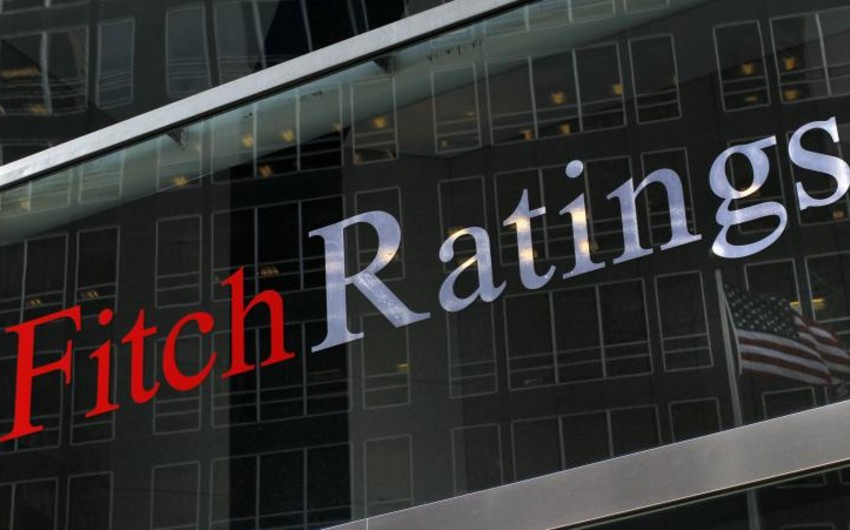Baku. 13 April. REPORT.AZ/ A drop in oil prices and subsequent currency devaluation has hit Azerbaijani banks' capital, eroding their ability to absorb credit losses, which are likely to increase, Report informs, Fitch Ratings said at its fifth annual conference on Azerbaijan in Baku today. Fitch has already taken negative rating actions on Azerbaijani banks, but the Outlooks on most remain Negative due to possible further pressure.
Sector average non-performing loans (NPLs; 90 days overdue) increased only moderately to 9.5% in 2015 (2014: 8.3%), but there are significant additional downside asset quality risks due to the economic recession (Fitch forecasts a 3.3% real GDP contraction in 2016) and a high share of foreign currency lending (51% at end-2015) to mostly unhedged borrowers. Asset quality is also undermined by a high share of restructured loans (around 15% at end-2015) and sizeable accrued interest at some banks.
Fitch generally views Azerbaijani banks' capitalisation as weak. Most Fitch-rated banks' regulatory capital ratios dropped by 3-5ppts in December after the 50% currency devaluation, as their foreign currency risk-weighted assets (RWAs) ballooned. Some banks also incurred significant one-off currency translation losses due to unhedged short positions. To help the banks achieve regulatory compliance, the central bank lowered the minimum capital ratio to 10% from 12%.
The country's largest bank, International Bank of Azerbaijan (IBA, BB/Negative/b-) managed to preserve its regulatory total capital ratio at around 12% as the effect of the capital hit from devaluation was largely offset by transferring from its balance sheet AZN3bn of bad loans and the corresponding reduction in IBA's RWAs. However, we estimate IBA's total remaining unreserved problems at over AZN3bn (3.4x of end-2015 regulatory capital), so the AZN500m capital injection expected in 2Q16 will need to be accompanied by additional bad loan buy-outs to fully restore the bank's solvency.
Profitability in 2015 was negative as most banks booked one-off translation losses on currency devaluation. We believe that loan impairment charges in 2016 may consume the entire pre-impairment profit of the banking sector.
The liquidity situation has stabilised after some turbulence in December 2015-January 2016, when banks experienced deposit outflows of about 10-15%. The banking sector remains reliant on funding from the central bank and other state-related entities (above 20% of total liabilities at end-2015), although this is fairly sticky.
Fitch took negative rating actions on Azerbaijani banks after the currency devaluation in December 2015 and sovereign downgrade in February 2016. Seven of the eight Fitch-rated banks in Azerbaijan have their ratings either on Negative Outlook or Watch. The support-driven IDRs of Access Bank (BB+), IBA (BB) and Pasha Bank (BB-) are underpinned by potential support from international shareholders (Access) or the Azerbaijani authorities (IBA, Pasha), and the Negative Outlooks reflect that on the sovereign. Other banks' ratings are the 'B' category or below, reflecting their vulnerable standalone credit profiles.


 https://static.report.az/photo/5db26f00-b450-453a-aad9-b029d29d6099.jpg
https://static.report.az/photo/5db26f00-b450-453a-aad9-b029d29d6099.jpg

